Pamela Bedore – Great Utopian and Dystopian Works of Literature
Description
Great Utopian and Dystopian Works of Literature , Pamela Bedore – Great Utopian and Dystopian Works of Literature download
Pamela Bedore – Great Utopian and Dystopian Works of Literature
Great Utopian and Dystopian Works of Literature
Join an award-winning professor to examine a wide range of literary works extending from the peaceful to the nightmarish, and from the conservative to the subversive.
LECTURE (24)
01:Utopia: The Perfect Nowhere
Enter the world of utopian and dystopian fiction. After a brief foray into the definition and origin of utopia, dive into Ursula K. LeGuin’s short story The Ones Who Walk Away from Omelas and explore the ambiguities of “perfect” worlds. Then, get a deeper understanding of the ways genre functions and how it shapes literature….
02:Thomas More and Utopian Origins
Take a step back and learn about the origins of the utopian genre, beginning with Thomas More’s Utopia of 1516. More’s foundational work gave us the word “utopia,” but did it create the genre? Explore the elements of the story to see how it set conventions for later works but also critiqued the very idea of utopia in the process….
03:Swift, Voltaire, and Utopian Satire
Continue your exploration of the early history of utopia by examining notable works produced during the two centuries following More’s initial work. Compare and contrast the ideas of “classical utopia” and “critical utopia” and understand how laughter was an integral part of 18th-century utopian storytelling, focusing on Voltaire’s Candide and Jonathan Swift’s Gulliver’s Travels….
04:American Dreamers: Hawthorne and Alcott
The 19th century was the “century of utopia” and also marked the transition from utopian to dystopian stories in popular literature. Look at Americans who attempted to build real-world utopias, and in turn examine the work of two authors who reacted to the American attempt at perfect societies: Nathaniel Hawthorne and Louisa May Alcott. Consider the ways that optimistic, utopian thinking is integr…
05:Samuel Butler and Utopian Technologies
Shift your attention from rural American utopias to explore from a different perspective: Victorian anxieties about technology and the vanishing frontier. Analyze these fears in Samuel Butler’s Erewhon, which utilizes utopian conventions and heavy doses of satire to critique religion, health, education, and humanity’s increasingly complex relationship to machines….
06:Edward Bellamy and Utopian Activism
Can utopian literature have real-world impact? This question is integral to understanding the significance of Looking Backward by Edward Bellamy. Witness the ways Bellamy’s socialist vision of the future had genuine influence on the social activists of Gilded Age America. Professor Bedore also introduces the idea of “euchronia”-a form of utopia set in a different time rather than a different place…
07:H. G. Wells and Utopian Science Fiction
Unlike the utopian tradition, science fiction doesn’t have a single text that defines its origin. It does, however, have several figures credited with its creation. One such figure is H.G. Wells, who not only helped in the creation of science fiction as a genre, but was also deeply devoted to utopian thinking. Ultimately, his work brought utopia and science fiction together in the same space, high…
08:Charlotte Perkins Gilman and Gendered Utopia
Many utopian stories were concerned with “the woman question,” or the quest to determine where women belong in an ideal society. Charlotte Perkins Gilman went a step further by creating a utopian society populated solely by women: Herland. See how questions of gender equality are reframed without the reference of an opposite gender and the impact of Gilman’s vision on the feminist movements of the…
09:Yevgeny Zamyatin and Dystopian Uniformity
Shift your attention from utopian blueprints to the cautionary tales of dystopia and explore the origins of the genre and the complex ways it functions in literature. Examine the period between World War I and World War II that produced the “Big Three Dystopias” and dive into the earliest of them, We by Yevgeny Zamyatin….
10:Aldous Huxley and Dystopian Pleasure
Aldous Huxley’s Brave New World, published in 1932, is the second of the “Big Three” dystopian novels of the interwar years. Investigate the ways Huxley projects the anxieties of his day onto the future, creating a world in which people are controlled not by pain or fear, but by pleasure, and consider how utopian and dystopia are often only matters of perspective….
11:George Orwell and Totalitarian Dystopia
Perhaps the most famous of the three defining dystopias of the early 20th century, George Orwell’s Nineteen Eighty-Four has created a vocabulary of ideas we continue to use in political discourse today. Trace the ways Orwell uses language to shape his dystopic vision and the way it both reflects and distorts reality….
12:John Wyndham and Young Adult Dystopia
Published during the wave of anti-communist hysteria of the 1950s, John Wyndham’s The Chrysalids is one of the earliest examples of Young Adult dystopian fiction and a potent examination of the “fear of the Other” in dystopian storytelling. See how it set the stage for the extremely rich strain of dystopian literature aimed at younger readers that dominates bestseller lists in the 21st century….
13:Philip K. Dick’s Dystopian Crime Prevention
Examine the parallels between social and political issues that become prominently reflected in science fiction literature as utopias and dystopias become less independent of each other. Look at the portrayal of community, choice, and rules to determine when the sacrifices being made cross the threshold between a completely perfect society and a complete lack of freedom. As the genre starts to tack…
14:Anthony Burgess, Free Will, and Dystopia
Delve deeper into the central question of free will and how utopian studies respond emotionally and intellectually to this conundrum by examining A Clockwork Orange. Discover the literature that influenced it and was impacted by it, while exploring the nuanced differences between reading and watching this pivotal work. Burgess looks at extreme situations to pose questions we continue to struggle w…
15:The Feminist Utopian Movement of the 1970s
The feminist utopian movement began in the 1970s and, despite the name, doesn’t feature very many traditional “utopias.” There is a guarded optimism represented in these novels that dealt with real-world issues of discrimination by creating societies portrayed as classless, crimeless, government-free, but laden with satire….
16:Ursula K. Le Guin and the Ambiguous Utopia
Delve into the science fiction-based worlds of Ursula K. Le Guin, who approaches various situations with an open mind, drawing upon disciplines like physics, anthropology, and fine arts. She builds worlds in which people attempt all kinds of strategies of governance, including no governance at all. Discover how Le Guin uses sci-fi and utopia to explore LGBTQ issues with the intent to change our vi…
17:Samuel Delany and the Heterotopia
Focusing on Trouble on Triton, explore the ways Delany introduces readers to ambiguous heterotopia through a society where your identity (such as sex, race, religion, and sexual preference) can easily be changed. Investigate whether this abundance of individual freedom results in utopia or dystopia….
18:Octavia Butler and the Utopian Alien
None of Octavia Butler’s writings fit perfectly into the categories of utopia or dystopia, but she is vital to this study because her utopian writing represents a turning point that moves us from the feminist utopian renaissance of the 1970s to the more complex negotiation between utopian and dystopian impulses that helped shape the genres as they are today. In the first of two lectures focused on…
19:Octavia Butler and Utopian Hybridity
Examine the many ways Butler challenges boundaries-not only of genres, but also of human identity. In this lecture, you’ll see how she tackles the questions that are important in defining utopian futures: what does it mean to be human? Is utopia always an unresolvable paradox? And if it is, does it have to be? How much can we change and still be considered human? And really, does being human even …
20:Margaret Atwood and Environmental Dystopia
Margaret Atwood is an icon in utopian and dystopian fiction. Explore the ways she has helped to shape utopian thought and sexual politics with one of her classic novels, The Handmaid’s Tale, as well as her more recent MaddAddam trilogy. Atwood is known for apocalyptic writing but you’ll see how even her darkest works have elements of humor and satire with intrinsic meaning….
21:Suzanne Collins and Dystopian Games
Does it seem like a lot of the most popular books for young adults lately have been dystopias? In this lecture, explore why teens are so drawn to dystopia, what current anxieties are being tracked in this large body of YA literature, and what the impact of this literature on young adult readers has been. You’ll also discover why this subgenre is so popular with adults….
22:Cyberpunk Dystopia: Doctorow and Anderson
The cyberpunk genre was developed in the 1980s and often features advanced information technology that allows much of the action to take place in cyber space rather than physical space, with an emphasis on the dangers and pleasures of the spaces between the cyber and physical worlds. Through satire or in earnest, we get at the same anxieties about contemporary American society: the internet has am…
23:Apocalyptic Literature in the 21st Century
Dive into the world of post-apocalyptic literature, which examines the aftermath of a cataclysmic event. Review the four major apocalyptic sources: technological, biomedical, environmental, or supernatural, and explore bodies of work that utilize each one. You’ll see how even the worst dystopian situations often sneak hopes of utopian thinking into the stories because humanity survives on a core o…
24:The Future of Utopia and Dystopia
Reflect on how dystopia shows us the darker side of contemporary reality right here in our connected global world, focusing on issues we struggle with every day: totalitarian government, new technologies, economic disparity, control of sexuality, and environmental degradation. Conclude with the recurring theme around utopian yearnings and the sinister road that leads to dystopia, proving that the …
DETAILS
Overview
Great Utopian and Dystopian Works of Literature delivers 24 illuminating lectures which plunge you into the history and development of utopian ideas and their dystopian counterparts. You’ll encounter some of the most powerful and influential texts in this genre as you travel centuries into the past and thousands of years into the future, through worlds that are beautiful, laughable, terrifying, and always thought-provoking.
About
Pamela Bedore
Long before “Utopia” was published, humans have tried to find a shared understanding of what a perfect society might look like, and more importantly, how it can be achieved.
ALMA MATER
University of Rochester
INSTITUTION
University of Connecticut
Pamela Bedore is an Associate Professor of English at the University of Connecticut, where she teaches courses in American Literature, Popular Culture, and Genre Fiction. She holds undergraduate degrees in English and Education from Queen’s University, a Master’s from Simon Fraser University, and a PhD from the University of Rochester.
Dr. Bedore has published widely on science fiction, detective fiction, and writing administration, in such journals as Foundations: The International Review of Science Fiction, Studies in Popular Culture, and Writing Program Administrator. She is the book review editor for Clues: A Journal of Detection. Her first book, Dime Novels and the Roots of American Detective Fiction, was published in 2013. Dr. Bedore has examined such diverse phenomena of popular culture as vampires and zombies in the financial news, gay detectives in nineteenth-century dime novels, and the teaching of monster culture.
Winner of AAUP (American Association of University Professors) Excellence Awards in Teaching Promise and then in Teaching Innovation, Dr. Bedore has taught innovate literature courses including American Detective Fiction, Stephen King and Cultural Theory, The Monster in Literature and Culture, and Sherlock Holmes and Media Studies.
Commonly Asked Questions:
- Business Model Innovation: Acknowledge the reality of a legitimate enterprise! Our approach involves the coordination of a collective purchase, in which the costs are shared among the participants. We utilize this cash to acquire renowned courses from sale pages and make them accessible to individuals with restricted financial resources. Our clients appreciate the affordability and accessibility we provide, despite the authors’ concerns.
- Great Utopian and Dystopian Works of Literature Course
- There are no scheduled coaching calls or sessions with the author.
- Access to the author’s private Facebook group or web portal is not permitted.
- No access to the author’s private membership forum.
- There is no direct email support available from the author or their team.
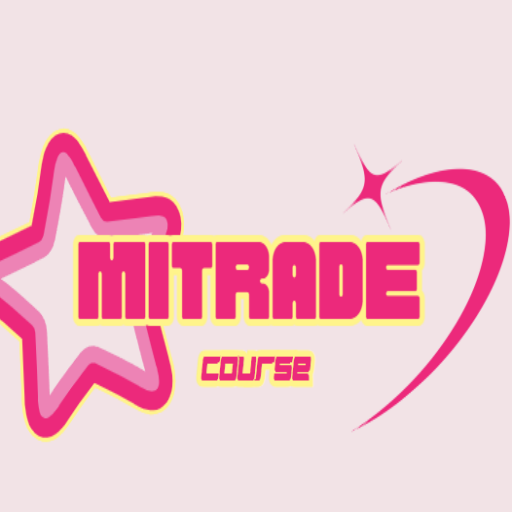

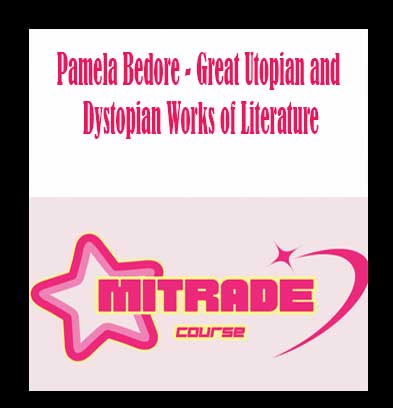

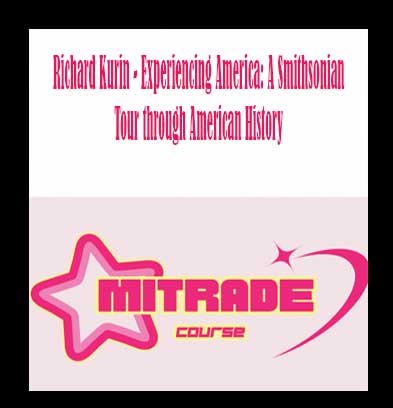
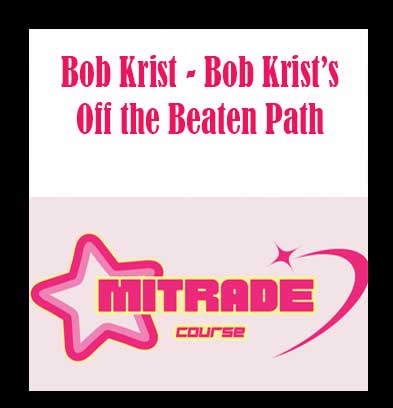

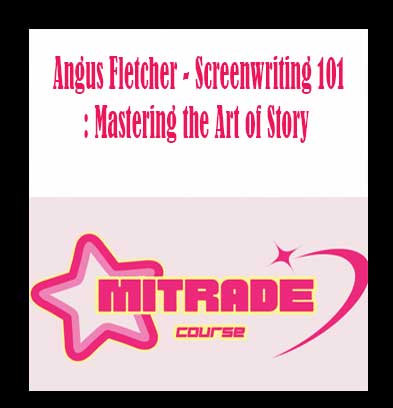
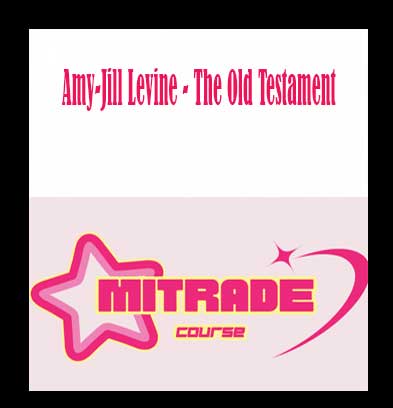

Reviews
There are no reviews yet.